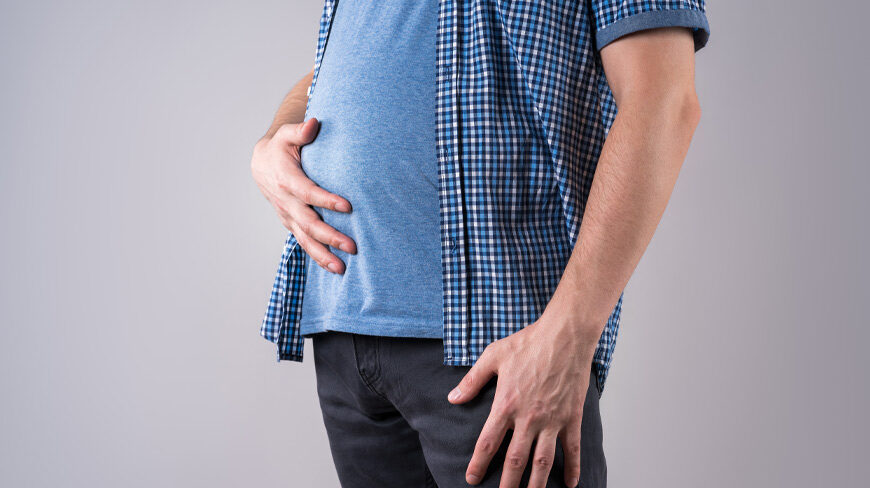8 Reasons You’re Bloated After Eating
Feeling full and uncomfortable after eating? The culprit may be bloating. Bloating is caused by the stomach stretching because of the build-up of excess gas and fluid. Once the stomach has stretched enough, it puts pressure on the abdomen, which causes a bloated feeling. Here are eight reasons you may be bloated after eating.
1. Overeating
Overeating is a common cause of bloating. When you overeat and consume large amounts of food in one sitting, your stomach stretches to accommodate the extra volume. As your stomach stretches, it increases the pressure in your abdomen, leading to bloat. Overeating can also increase bloating by slowing digestion and increasing gas production in the digestive tract.
2. Eating Too Quickly
Eating too quickly can contribute to bloating for a few reasons. First, when you eat too fast, you tend to swallow air, which can cause a build-up of pressure in the abdomen. Ingesting excess air while eating also causes your digestive system to create excess gas, which worsens bloating.
Secondly, eating too quickly often results in inadequate chewing. When food is not chewed correctly, it can slow digestion, worsening bloat. Lastly, eating too quickly can lead to overeating, which also worsens bloating.
3. Eating Gassy Foods
Eating certain foods can cause your digestive tract to produce excess gas during digestion and make you feel bloated and gassy. Foods that produce more gas during digestion and lead to bloating include beans, lentils, broccoli, cabbage, onions, and carbonated beverages.
4. Food Intolerances or Sensitivities
Some people may develop a bloated feeling after eating if they have specific food intolerances or sensitivities. Consuming intolerant or sensitive foods, such as lactose or gluten, can result in bloating, gas, and other digestive symptoms.
5. Eating Fatty, Fried, or Greasy Foods
Consuming foods high in fat takes longer to digest, which can cause you to feel full and bloated after eating.
6. Eating Too Many Carbohydrates
Although your body uses carbohydrates as fuel, eating too many carbs at once can make you retain water, leading to bloating. Simple carbohydrates found in processed or refined foods like white bread and candy can also take longer to digest, contributing to a bloated feeling after eating.
7. Swallowing Air
Swallowing air while eating too fast or talking while eating can cause bloating in the stomach and the digestive tract.
8. Drinking Carbonated Drinks
Carbonated beverages already contain air, so when you drink them, the air enters the stomach and can make you feel full and bloated. Although you may be able to burp some of the air out, some remains, and as it travels down the digestive tract, it can become uncomfortable.
Tips to Avoid Feeling Bloated After Eating
If you are experiencing bloating after eating, consider trying some of these helpful tips!
- Eat smaller, more frequent meals.
- Avoid foods that commonly cause gas or bloating, such as beans, carbonated drinks, broccoli, onions, and wheat.
- Identify and avoid the foods you may be sensitive to.
- Eat meals slowly and thoroughly chew your food.
- Drink plenty of water.
- Exercise regularly to promote digestion.
Stop Bloating in Its Tracks
Bloating can be relieved through simple dietary changes, proper hydration, and regular physical exercise. If you are experiencing bloating after eating, consult your doctor today for an accurate diagnosis and treatment!
Request Appointment
Related:


